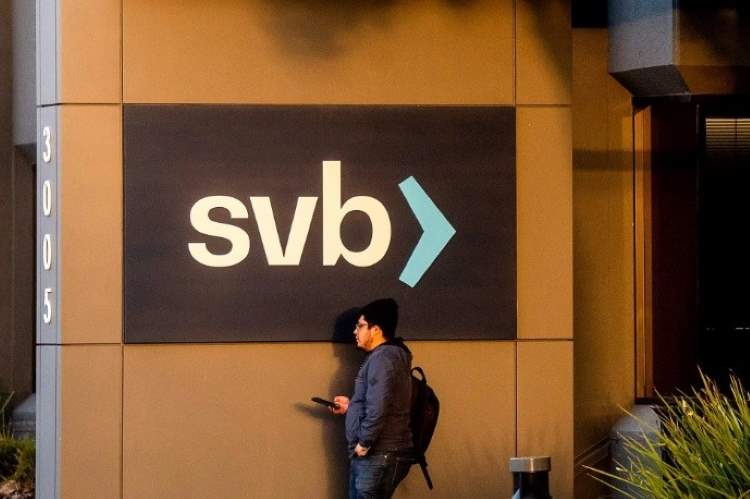
The collapse of Silicon Valley Bank or SVB and New York-based Signature Bank has sent tremors through the global technology hubs that are still to recover from the impact of the Covid-19 pandemic and the Russian invasion of Ukraine. SVB’s fall, especially, will be a blow for startups around the world and their employees.
The fall of SVB is dubbed as the second-largest bank failure in the history of the US. This is to the extent that entrepreneurs and investors from countries such as India, Mexico, Morocco, Singapore, and China admitted that the debacle affected them directly, and created worry about the fallout of the crisis on the funding and regulatory environment.
SVB is tightly woven into the global startup economy with nearly 50% of all US VC-backed startups being its customers, along with a number of prominent VC firms. The fact that the bank had more than $200 billion in assets when it collapsed makes things even more worrying. While the bank was high on assets, it had a liquidity problem which ultimately led to its going out of business. Its deposits had fallen from nearly $200 billion at the end of March 2022 to $173 billion at the year-end.
READ | MGNREGA: States should follow Jharkhand’s BHGY lead
What triggered SVB collapse
Silicon Valley Bank was the 16th largest bank in the United States till its sudden collapse last week. Founded in 1983, the California-based bank was the darling of the startup community across the world. SVB experienced a boom throughout the pandemic years as consumer spending on digital services and gadgets boomed.
The technology companies and startups started holding their cash with SVB to hold the cash for salaries and business expenses. The bank invested a large portion of these deposits in long-dated US government bonds. When the interest rates began to rise, SVB’s bond holdings lost significant value. Last year saw the economic conditions worsening for tech companies, and they started drawing on their deposits. This forced the bank to sell its bond holdings at heavy losses. In a matter of hours, the bank collapsed.
The US government was quick to guarantee the deposits, containing the worries about a contagion effect. Shareholders and unsecured creditors are not protected under the guarantee. Banking regulators around the world are ascertaining the exposure of their companies and banks in SVB.
The problems with SVB were evident when a big crypto bank Silvergate also announced that it was shutting down. The already jittery tech industry panicked further and decided to take out their money to be safe. Customers pulled out $42 billion in just one day and this was a quarter of SVB’s cash balance. According to an order from California’s Department of Financial Protection and Innovation, the bank became insolvent after investors and depositors caused a run on its holdings.
SVB’s fall and India connection
The finance ministry hasn’t made a big deal of the fall and isn’t worried. It has even affirmed that the contagion is unlikely to trigger systemic risks. However, it has not denied any effects on individual startups. This is because a number of Indian tech startups have accounts at the bank. This is especially worrying for firms which provide software-as-a-service (SaaS) to US clients.
Through its parent entity, SVB holds investments in startups such as Bluestone, Carwale, InMobi, and Loyalty Rewardz. Therefore, it is imperative that there will be a direct impact on the Indian startup economy. Further, YCombinator which is one of the key clients of SVB has in turn invested in over 19 start-ups in India. The timing couldn’t be worse for the Indian startups which are already reeling under a funding freeze.
Meanwhile, several leading banks including Axis Bank, Kotak Mahindra Bank, ICICI Bank and HSBC India have jumped in to help the founders move their money from SVB into dollar accounts in Gujarat GIFT City.
A number of big tech companies have large chunks of money in SVB, but the most vulnerable are the smaller startups which were founded in the last couple of years. According to analysts, funds are crucial for tech startups because they generally require a lot of cash to pay for hefty expenditures including research and development costs and staff salaries.
Impact on the global economy
The Fed had stopped trading in stocks of First Republic Bank and Signature Bank on Friday after First Republic shares fell by 52%. However, the shocks of SVB reverberated and led to the fall of Signature, which lost billions on Friday as jittery customers withdrew their money. The bank was taken over by New York regulators on Sunday.
In Britain, the government is scrambling to minimise the damage to the country’s technology sector. Prime Minister Rishi Sunak listed the government’s efforts towards finding a solution to limit the potential hit to companies resulting from the failure of SVB’s UK subsidiary. In Asia, the SVB failure has left many Chinese funds and tech startups in the lurch. SVB was a key funding bridge for groups operating between China and the US.
While Indian banks did not have major exposures to these US banks, precautions must be taken. The flight of capital due to fear or panic may happen which is likely to lead to currency depreciation. To curb the same, RBI may further tighten monetary policy. The market regulator must also address the possible sentimental impact of the SVB collapse on banking stocks in the near term.
